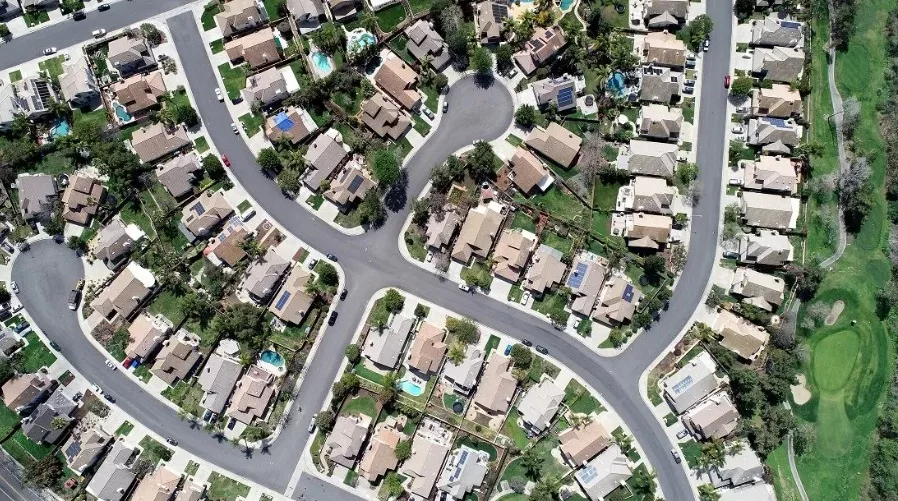
A small town can save the world.
Towns are a lot like families. Sometimes towns like to cover up an interesting past because they think people want a sterile, cardboard cutout “modern” façade. “People are comfortable with the familiar,” they say, and then they proceed to kill the soul of the world.
Do you remember in the old video games when the programmers wanted to show something traveling or traveling fast, say a car or a plane, they would just duplicate the visuals and loop them? So, you might drive or fly past the exact same scene over and over?
Did you ever notice that along the highways in the big cities, you pass these mini areas where all of the exact same chain stores and restaurants are duplicated every 5-10 exits or so? Walmart, Home Depot, Chilis, Bed Bath and Beyond, etc. If you miss your exit, just keep driving, you’ll find the whole thing repeated again coming up in just a bit. It’s like the programmers of the simulation copy-pasted the code because they were lazy or it was the easiest solution.
Families can be the same way. For a few generations, no one wants to claim or tell the story of the “black sheep” of the family history. If your great-great-grandfather was an old west gunslinger or a bank robber, rest assured the first generation after him wanted to sweep his story (history) under the rug.
For decades in small towns, city and institutional officials were embarrassed about the past. They pursued policies that encouraged businesses to “modernize” and to erase vestiges of the past. Often this meant cheap and ugly facades – plaster, stucco, and sheet metal – were tossed over the historical fronts of downtown buildings. Historical buildings were torn down or moved to make room for “progress.” Progress almost always means homogenization. City officials wanted the chain corporations to come to town, build up on the highway. They didn’t care if the old downtown areas died. Progress! “Progress” usually means that some cookie-cutter solution is going to be imposed that doesn’t require any thought or creativity. Witless functionaries have a copy-paste solution to every situation.
Let’s continue the lesson.
As big cities expand, cookie-cutter housing developments are thrown up (cheaply manufactured) for new families. Residential developments are usually made up of half a dozen or more housing plans, duplicated over and over again – but not too close together – so that homeowners can get the false idea that they are unique, thinking individuals and not replicants. As the residential areas expand, the big chains have an algorithm that tells them when to toss up a new shopping-restaurant-entertainment area. The people (all who watch the same TV shows,) then demand the same things. So, you get another Burger King, another Taco Bell, another Family Dollar, another Home Depot – all based on the number of people within a certain radius and how much money they have. Then those people living in those matchbox houses all watch HGTV, all have the same ideas, paint their walls the same color, put down the same faux wood floors, hang vapid scripty font sayings on the wall, buy some barn/farm chic decorations… on and on.
In small towns, the people in charge often mistakenly think that outsiders, visitors, onlookers, and passersby, will only feel safe and comfortable if a town looks like what they see when they go to the big cities. And it is true, the NPC kind of brainwashed masses are trained to want the same things and demand the identical cookie-cutter stores they see on television or when they drive to a big city. They feel like they have made it when their small town gets a new chain store or restaurant.
Back to families… Sometimes, after a few generations have passed in a family, some original thinker comes along who thinks “You know, great-great grandpappy Three Finger McGee the bank robber was an interesting guy!” Maybe it is kind of cool to know that an ancestor was a war hero, or ran for mayor and lost, or kidnapped the Lindbergh baby. History, if we’re lucky, reasserts itself. Someone remembers and everyone benefits.
Sometimes in a small town, a few people decide that history is kind of cool and that we ought to celebrate and preserve it. Some people tear off the ugly, cookie-cutter facades and re-discover the cool looks of the old buildings. Sometimes people work hard to bring those old buildings back to life – even if they modernize the insides to make them more useful. We all like air-conditioning, right?
You can have both.
Town leaders and the officials of large institutions are always way behind the curve. Or they are actively fighting against revitalization. In some towns, they see the benefits and help. When visitors come back to these cool old buildings and they find businesses that aren’t Xerox copies of businesses found at every exit on the highway, their minds jump out of the robotic track. People who experience unique, creative, locally owned businesses in cool buildings tend to think differently. They look around and discover new thoughts and ideas other than those given to them through the TV and the massive corporations. An old building or an old part of town that is revitalized is a chink in the armor of the simulation, mixaphorically speaking. It causes a glitch in the same-think matrix.
My point is that everything doesn’t always come down to economic growth alone. Sometimes a small spark of original thinking can start a conflagration – the good kind. I’ve talked to people who have started small businesses because they experienced small businesses being successful in a revitalized area. People get inspired when they see creativity that isn’t trying to mimic the false systemized type of “progress.”
Your assignment: Find the revitalizing area in your small town this holiday season. Go there and spend 10% to 20% of what you would have spent at the big cookie-cutter chain stores or restaurants. Take that much of your budget and spend it locally with a family-owned business that is trying to break out of the artificial mold programmed into the matrix. Find an old building with a new business in it and give those people a chance to change the world. It’ll work, I assure you.
***
Michael Bunker is a local columnist for BrownwoodNews.com whose columns appear on Wednesdays and Sundays on the website.
